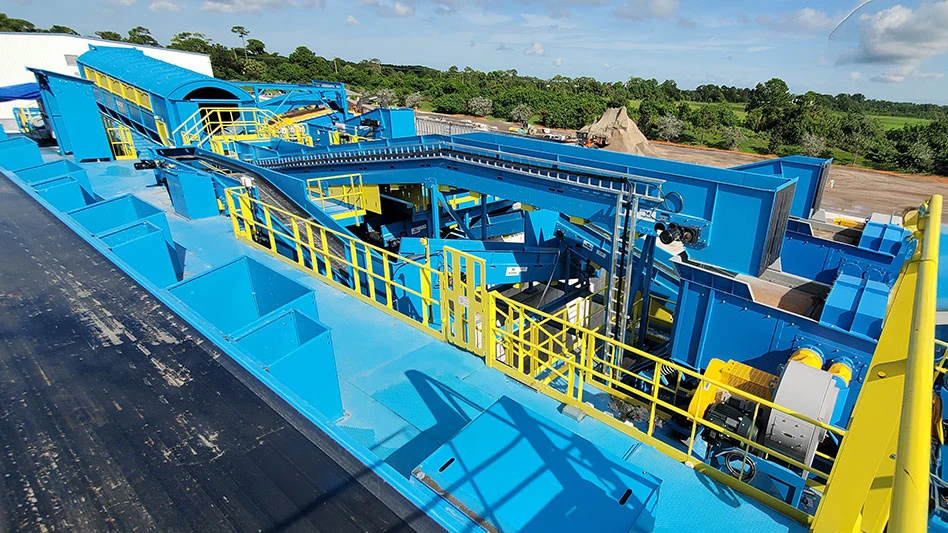
The California Legislature has approved legislation authored by Assembly Member Susan Eggman (D-Stockton) that she says would generate investments in jobs and a more efficient economy by creating a sales tax exemption on equipment used for recycling and composting. The bill, AB 199, has been passed on to Gov. Jerry Brown.
“This legislation can help us make the most of the materials we too often discard or ship overseas,” says Eggman. “I’ve seen dozens of local companies turn trash into treasure by recycling discards into new products. This not only eliminates the need for extracting new raw materials, it helps create manufacturing jobs.”
Nick Lapis, legislative coordinator for Californians Against Waste, the sponsor of the bill, says, “California’s commitment to recycling has diverted millions of tons of recyclables per year, cut greenhouse gases and created 125,000 jobs over the past two decades.”
He continues, “However, most of what we continue to send to landfills is readily recyclable or compostable. By collecting, processing and manufacturing these materials into new products in the state we can support a sustainable and prosperous California economy. Assembly Member Eggman understands that entrepreneurs, workers and local communities are critical in this effort and we applaud her leadership.”
AB 199 would provide a sales-and-use tax exemption on recycling and composting equipment, as well as equipment that uses recycled content in the manufacturing of new products. According to California’s Department of Resources Recycling and Recovery (CalRecycle), California exports 20 million tons of recyclables annually, worth nearly $8 billion. Keeping more of these materials in the state would allow Californians to share in both the environmental and economic benefits of their recycling efforts, according to CalRecycle.
CalRecycle says for every ton of materials that gets recycled instead of being disposed, California’s 5,300 recycling establishments will pay an additional $101 in salaries, produce $275 more in goods and services, and generate $135 more in sales. Furthermore, CalRecycle estimates that meeting the state’s recycling goals with in-state infrastructure could generate an additional 110,000 jobs, on top of the existing 125,000 people employed in recycling.
As California strives to achieve its ambitious recycling goal (AB 341 Chesbro, 2011) of recycling 75 percent of the solid waste it generates by 2020, an estimated 22 million tons will have to be collected and diverted from the state’s waste stream. Additionally, next year’s implementation of AB 1826 (Chesbro) will require restaurants, grocery stores, apartments and other commercial generators of organic waste to contract to have that waste composted or anaerobically digested, increasing the need for infrastructure to handle this new material.
Assembly Member Eggman has worked to create jobs with a sales-and-use tax exemption on recycling and composting equipment for nearly three years. She introduced similar legislation shortly after she was first elected in 2012, and although it did not pass, she says she remained focused on the issue and introduced AB 199 in early 2015.
Based in Sacramento, California, Californians Against Waste says its mission is to conserve resources, prevent pollution and protect California’s environment through the development, promotion and implementation of waste reduction and recycling policies and programs. Founded in 1977, the nonprofit environmental research and advocacy organization identifies, develops, promotes and monitors policy solutions to pollution and conservation problems posing a threat to public health and the environment.
“This legislation can help us make the most of the materials we too often discard or ship overseas,” says Eggman. “I’ve seen dozens of local companies turn trash into treasure by recycling discards into new products. This not only eliminates the need for extracting new raw materials, it helps create manufacturing jobs.”
Nick Lapis, legislative coordinator for Californians Against Waste, the sponsor of the bill, says, “California’s commitment to recycling has diverted millions of tons of recyclables per year, cut greenhouse gases and created 125,000 jobs over the past two decades.”
He continues, “However, most of what we continue to send to landfills is readily recyclable or compostable. By collecting, processing and manufacturing these materials into new products in the state we can support a sustainable and prosperous California economy. Assembly Member Eggman understands that entrepreneurs, workers and local communities are critical in this effort and we applaud her leadership.”
AB 199 would provide a sales-and-use tax exemption on recycling and composting equipment, as well as equipment that uses recycled content in the manufacturing of new products. According to California’s Department of Resources Recycling and Recovery (CalRecycle), California exports 20 million tons of recyclables annually, worth nearly $8 billion. Keeping more of these materials in the state would allow Californians to share in both the environmental and economic benefits of their recycling efforts, according to CalRecycle.
CalRecycle says for every ton of materials that gets recycled instead of being disposed, California’s 5,300 recycling establishments will pay an additional $101 in salaries, produce $275 more in goods and services, and generate $135 more in sales. Furthermore, CalRecycle estimates that meeting the state’s recycling goals with in-state infrastructure could generate an additional 110,000 jobs, on top of the existing 125,000 people employed in recycling.
As California strives to achieve its ambitious recycling goal (AB 341 Chesbro, 2011) of recycling 75 percent of the solid waste it generates by 2020, an estimated 22 million tons will have to be collected and diverted from the state’s waste stream. Additionally, next year’s implementation of AB 1826 (Chesbro) will require restaurants, grocery stores, apartments and other commercial generators of organic waste to contract to have that waste composted or anaerobically digested, increasing the need for infrastructure to handle this new material.
Assembly Member Eggman has worked to create jobs with a sales-and-use tax exemption on recycling and composting equipment for nearly three years. She introduced similar legislation shortly after she was first elected in 2012, and although it did not pass, she says she remained focused on the issue and introduced AB 199 in early 2015.
Based in Sacramento, California, Californians Against Waste says its mission is to conserve resources, prevent pollution and protect California’s environment through the development, promotion and implementation of waste reduction and recycling policies and programs. Founded in 1977, the nonprofit environmental research and advocacy organization identifies, develops, promotes and monitors policy solutions to pollution and conservation problems posing a threat to public health and the environment.
Latest from Recycling Today
- Greenwave raises revenue but loses money in Q2 2025
- Recycled steel prices hold steady
- EY says India’s need for scrap imports will continue
- Coming full circle
- Amcor, DCM introduce fertilizer packaging with 35 percent recycled content
- Comstock Metals gets closer to commissioning commercial-scale solar panel recycling facility
- Washington selects Circular Action Alliance as PRO
- Smurfit Westrock expands in Latin America





